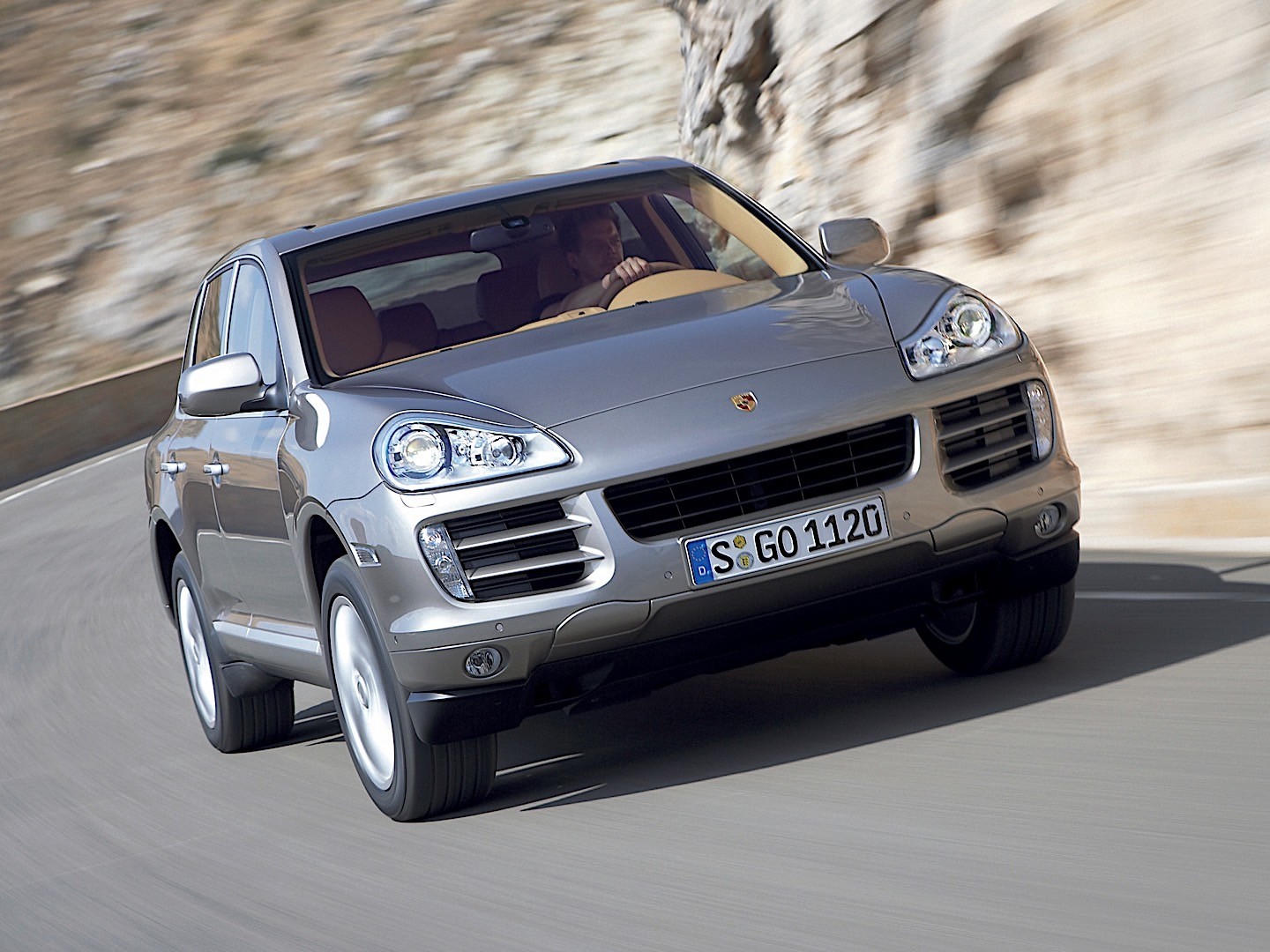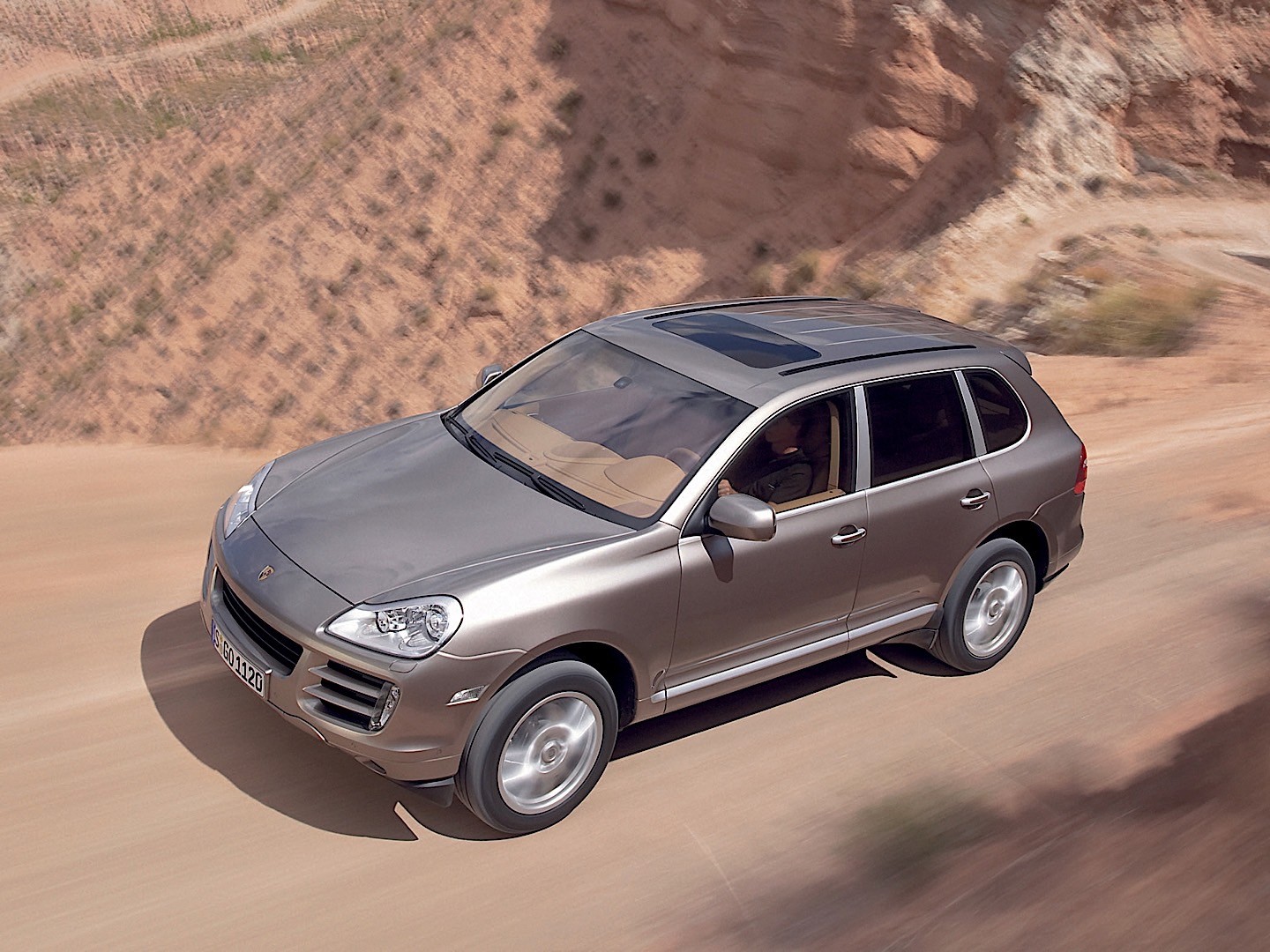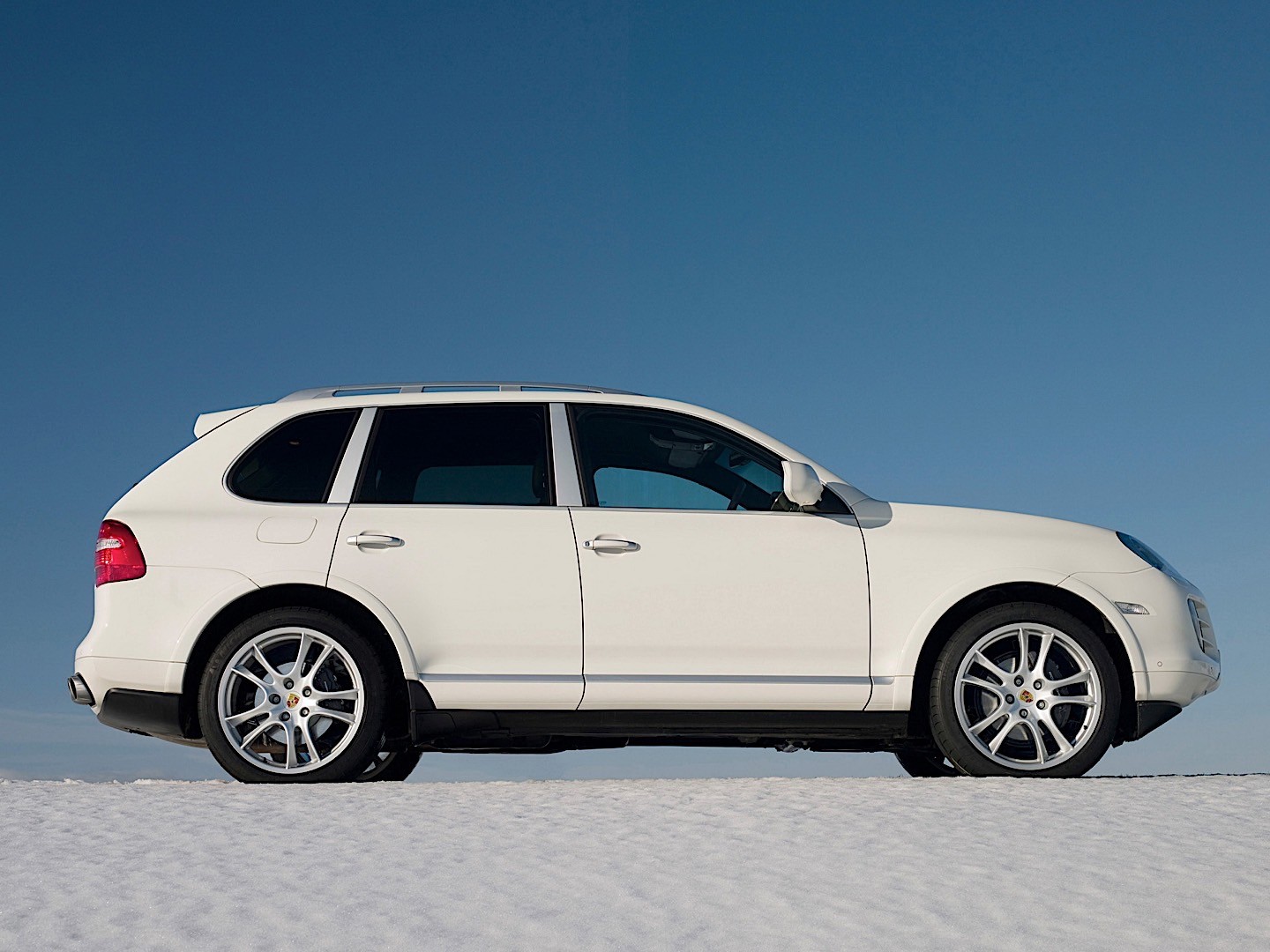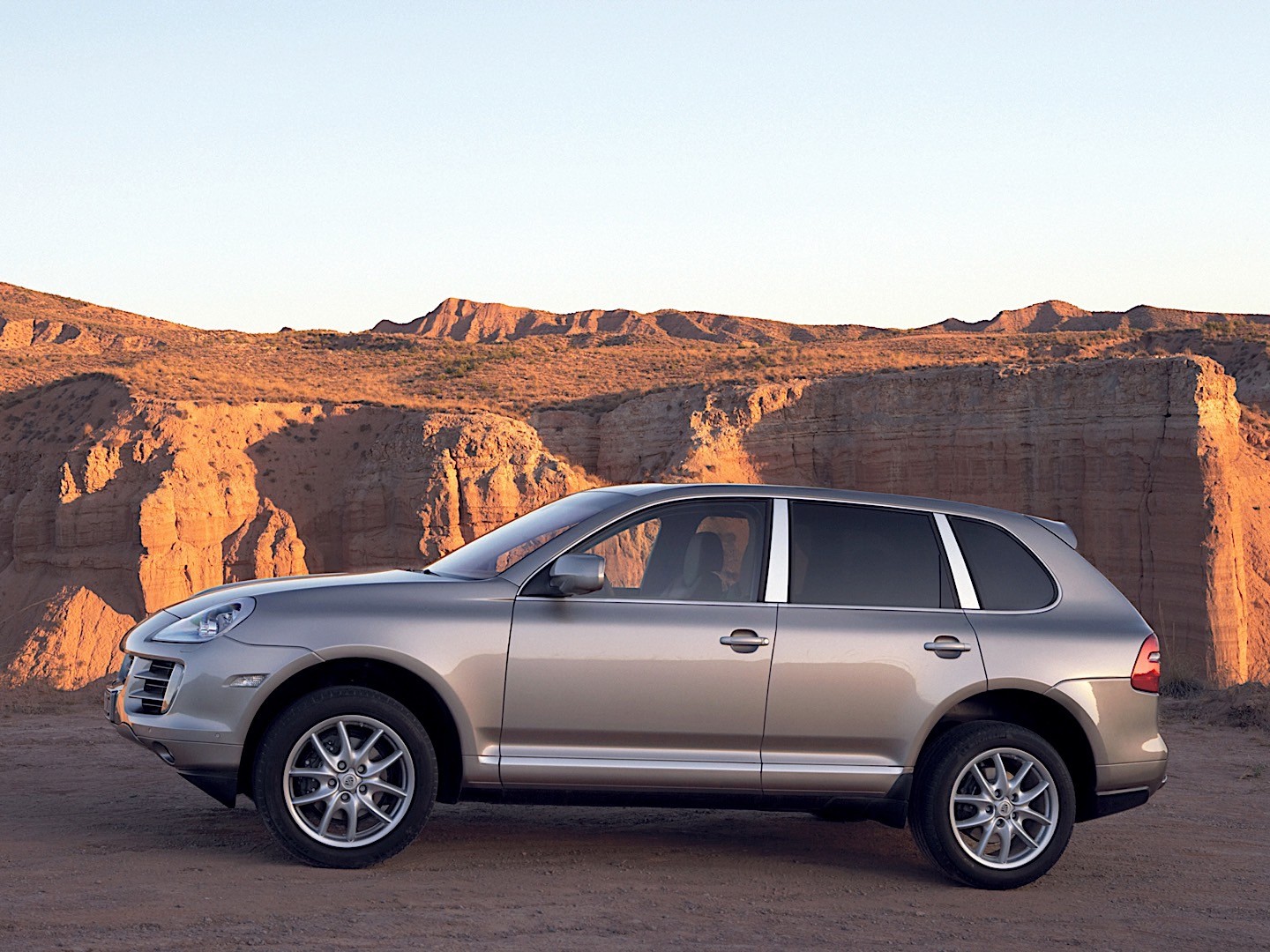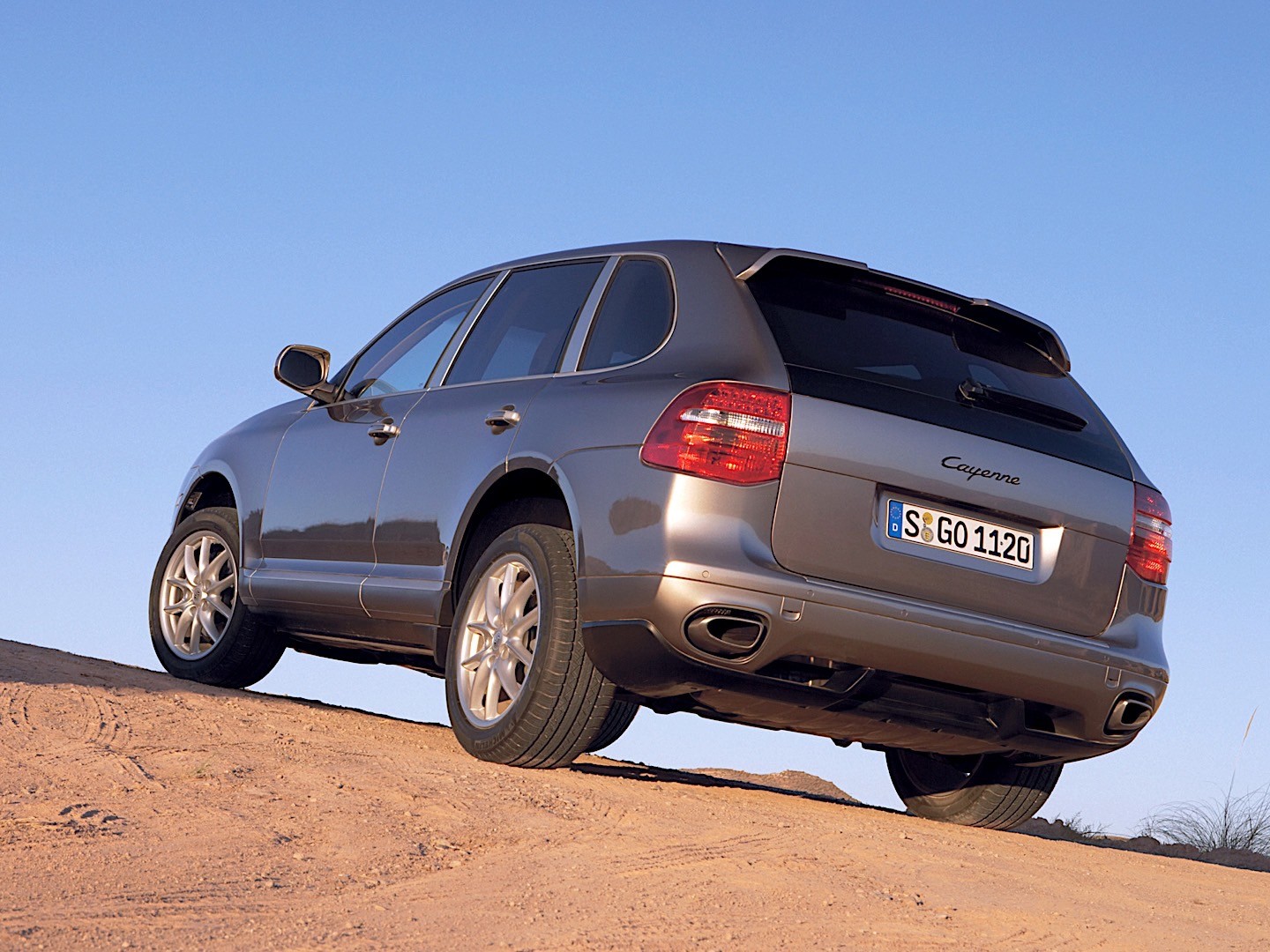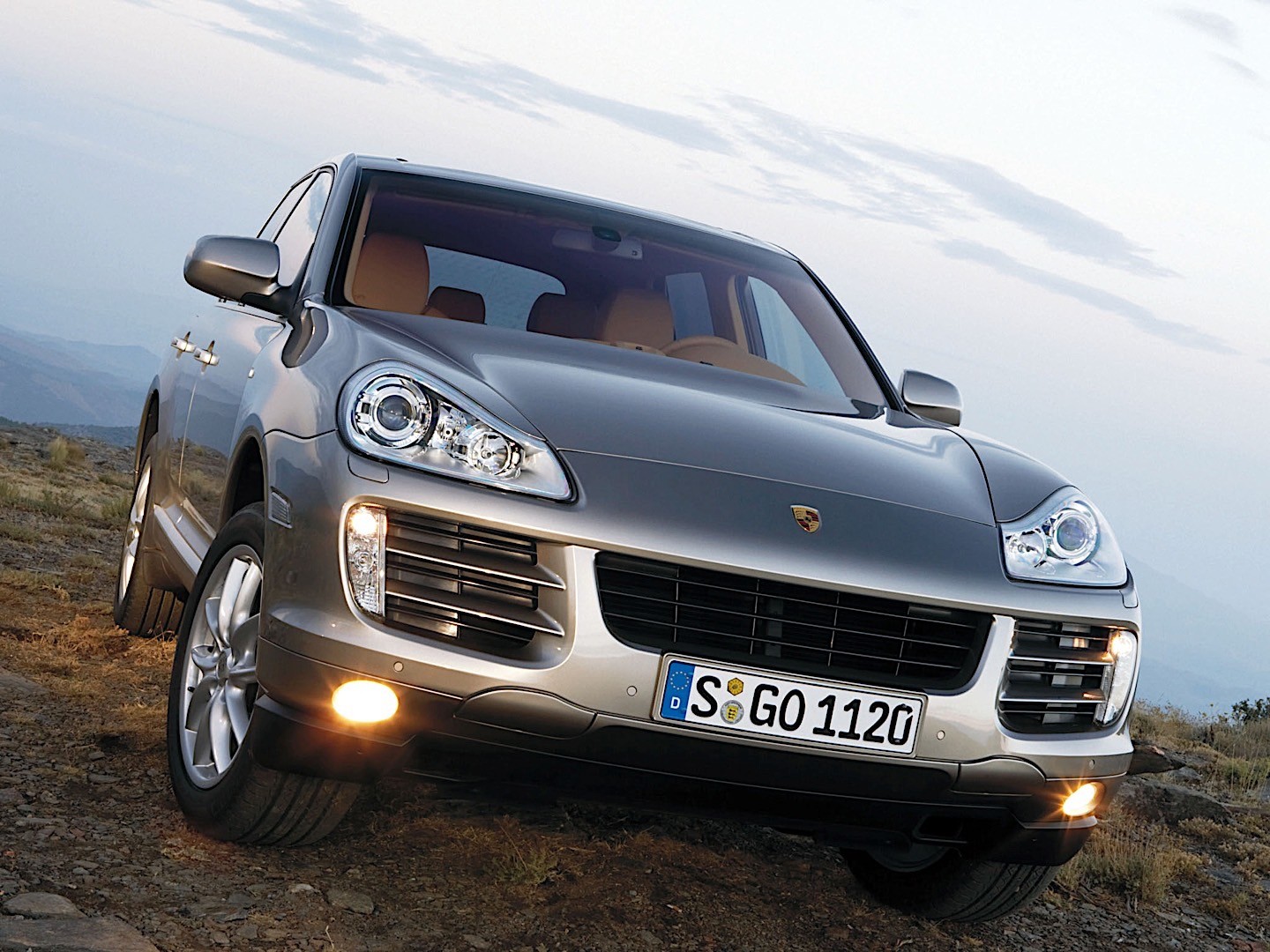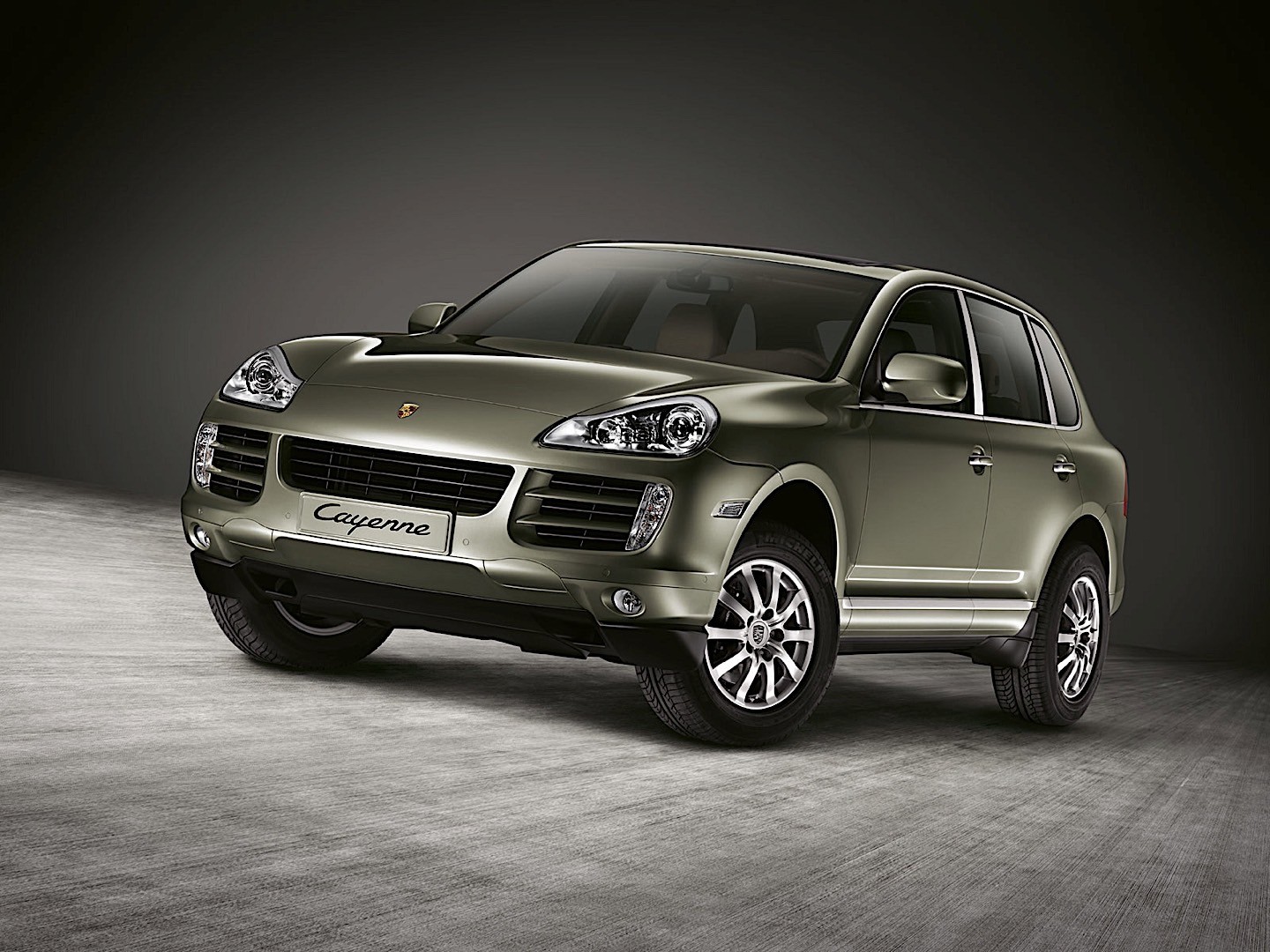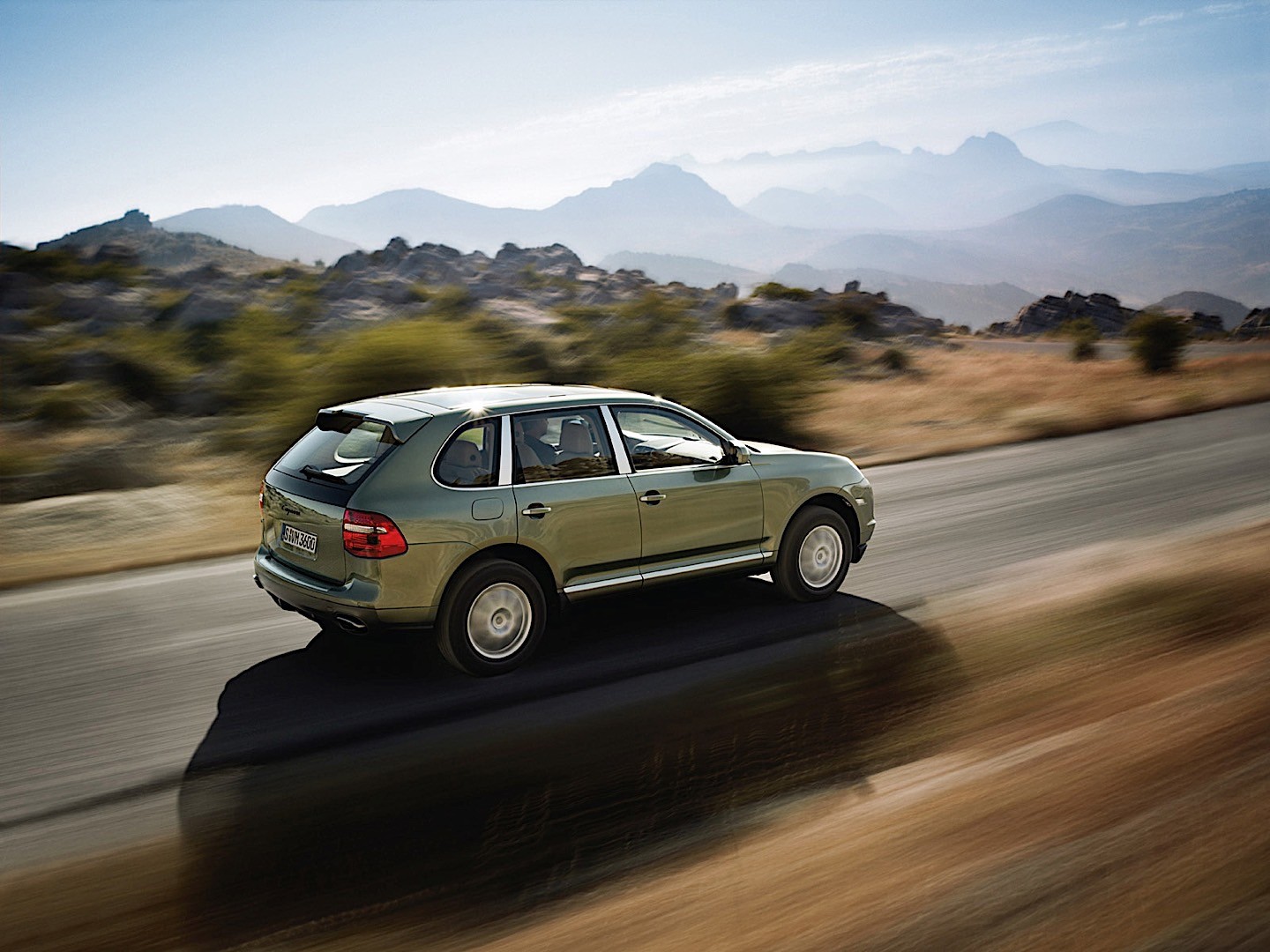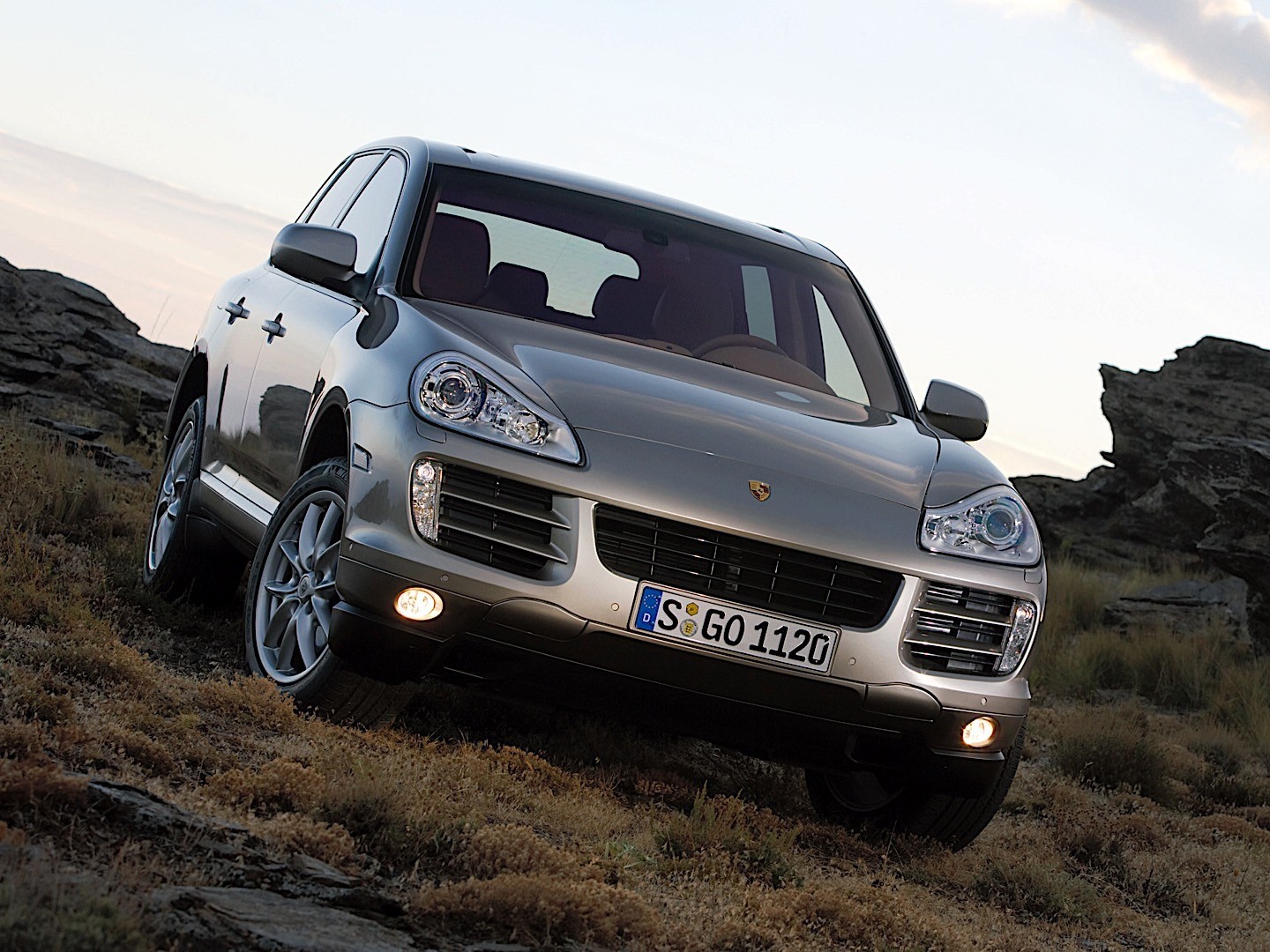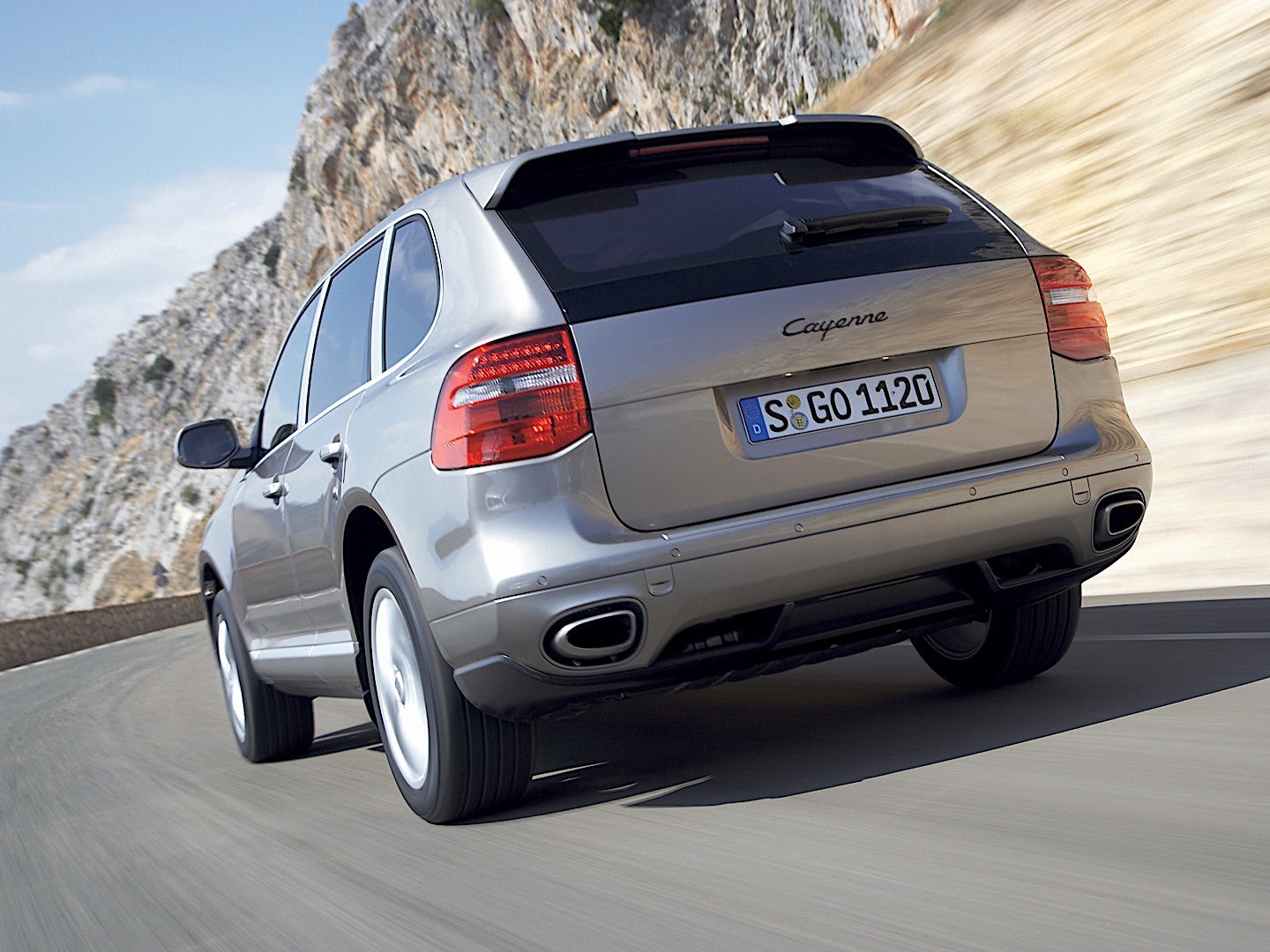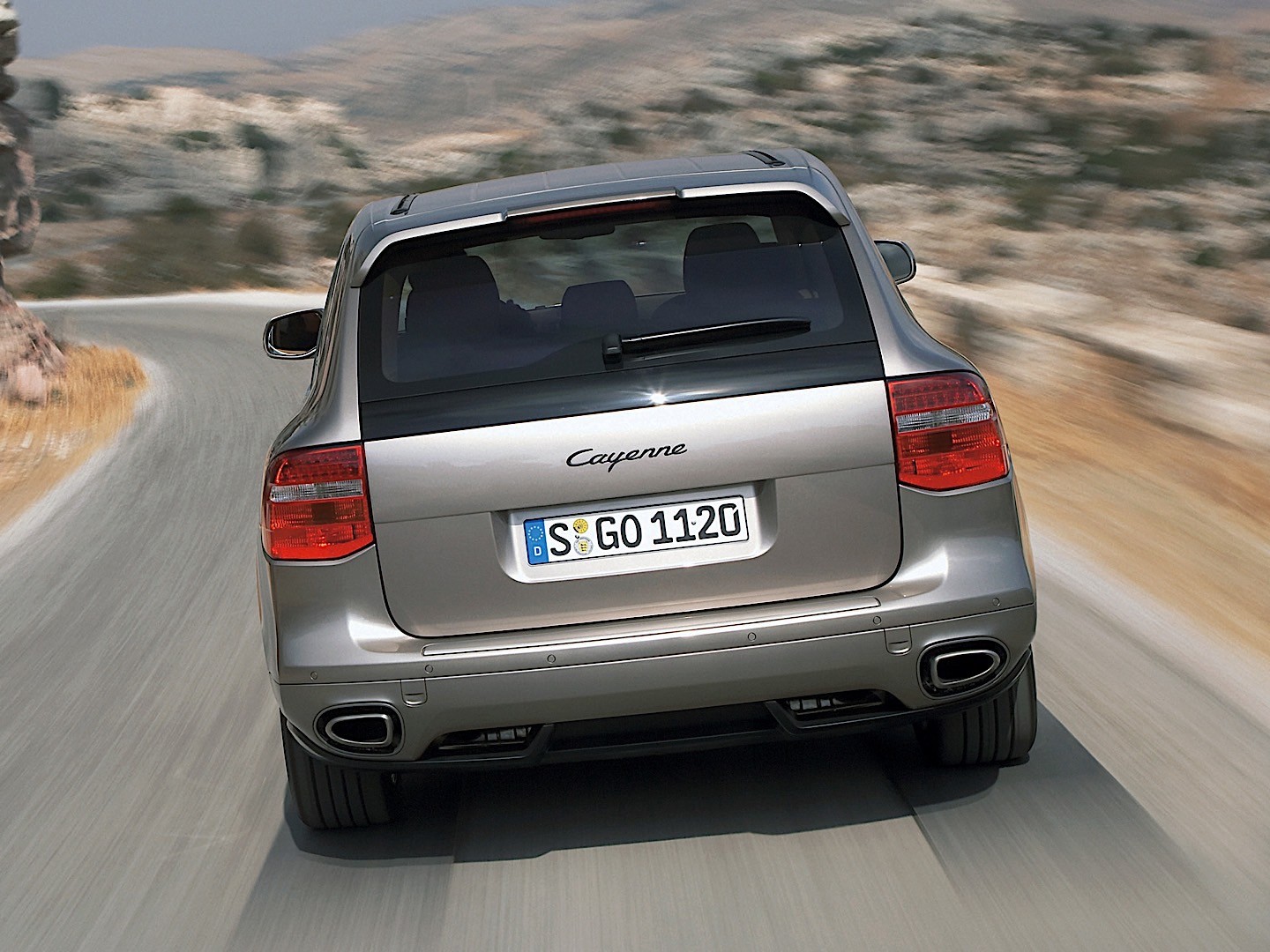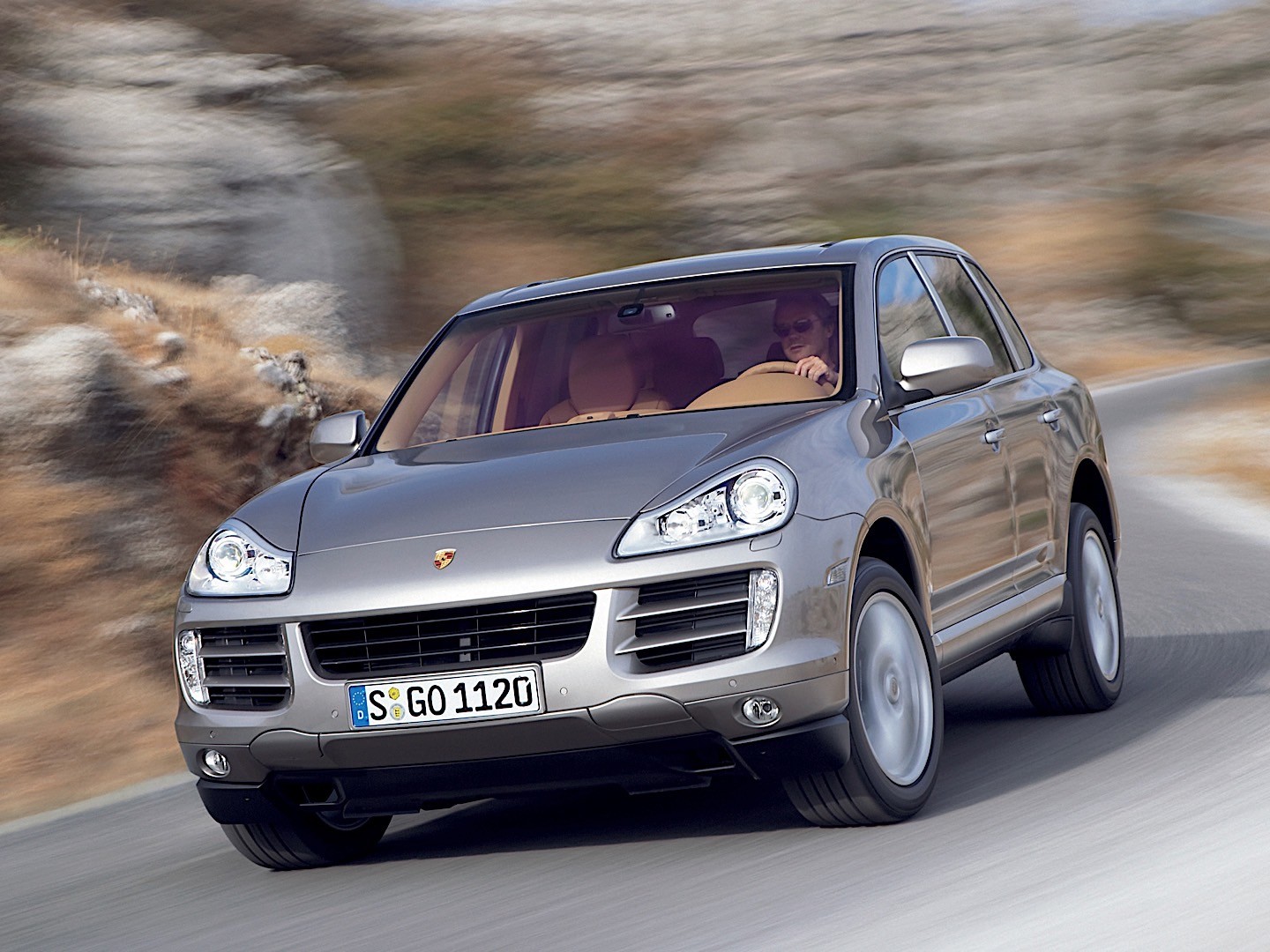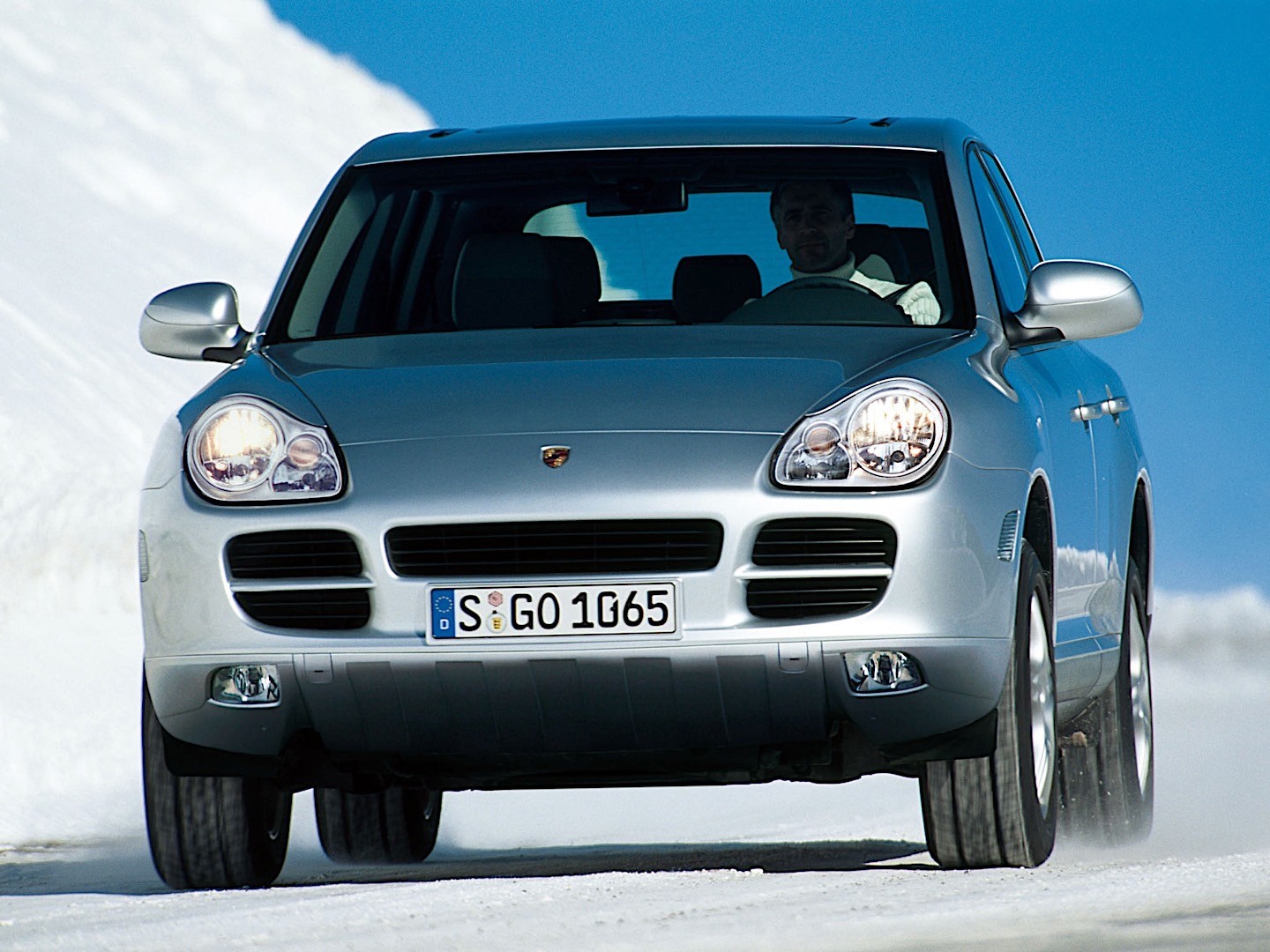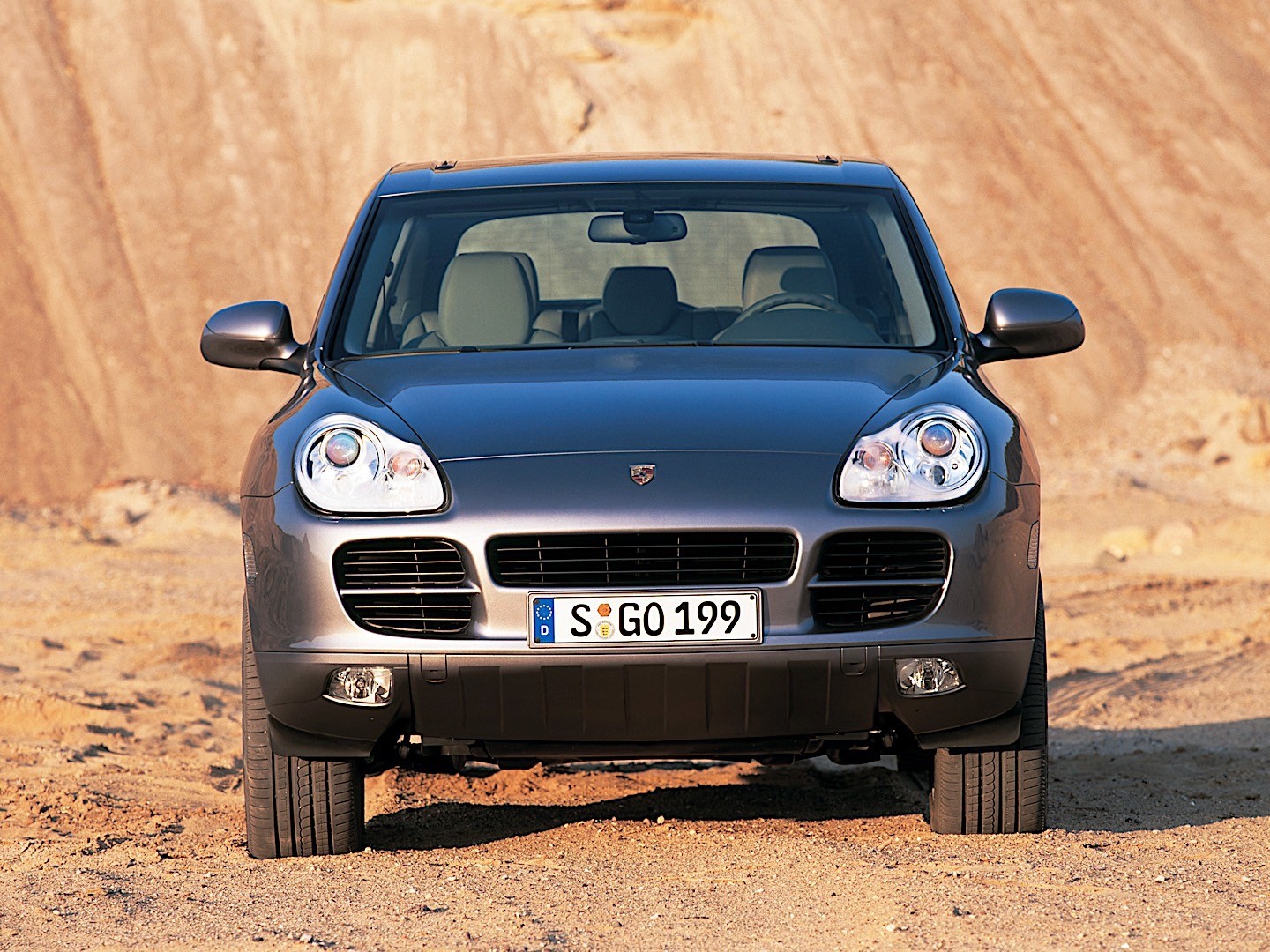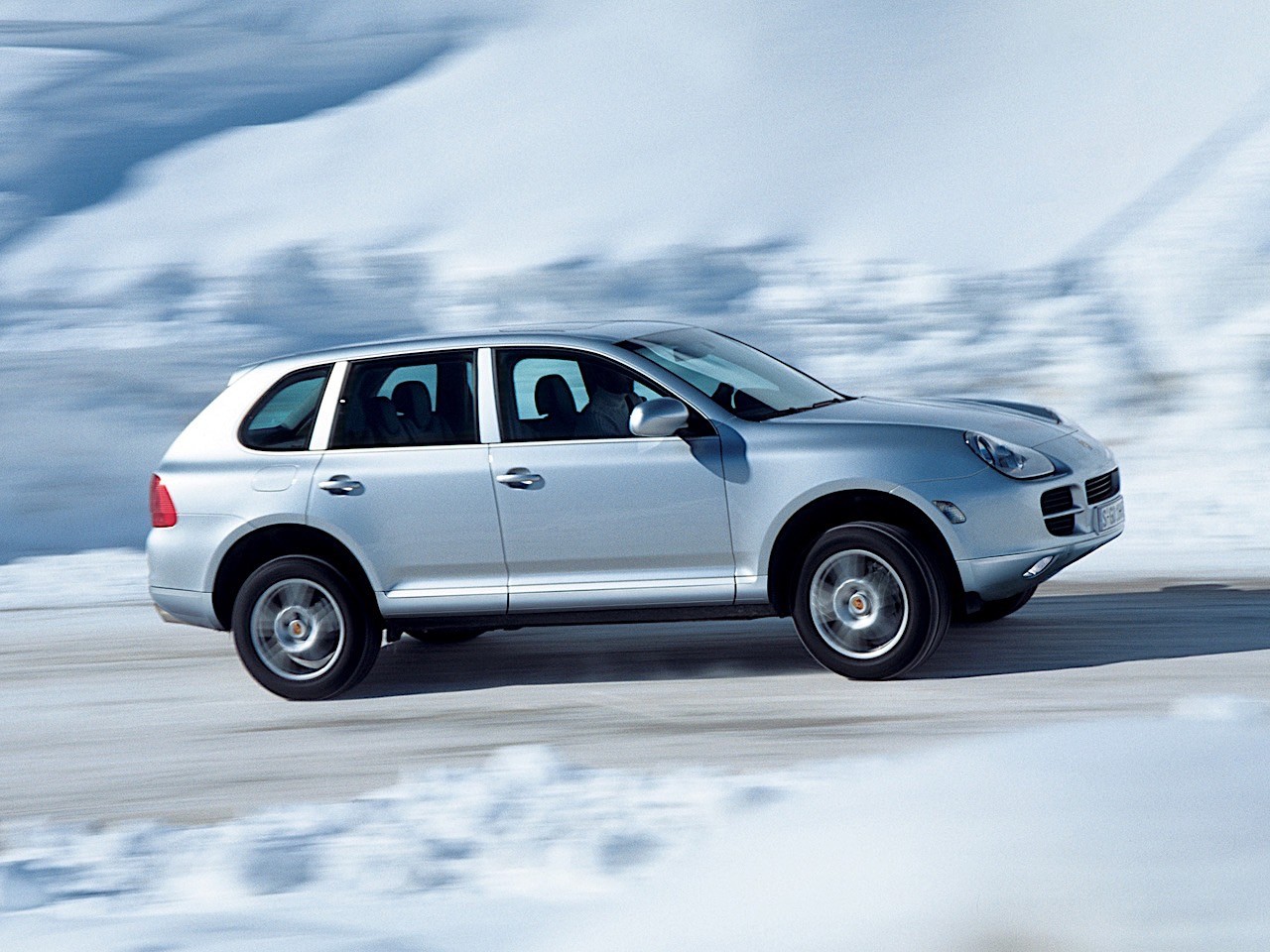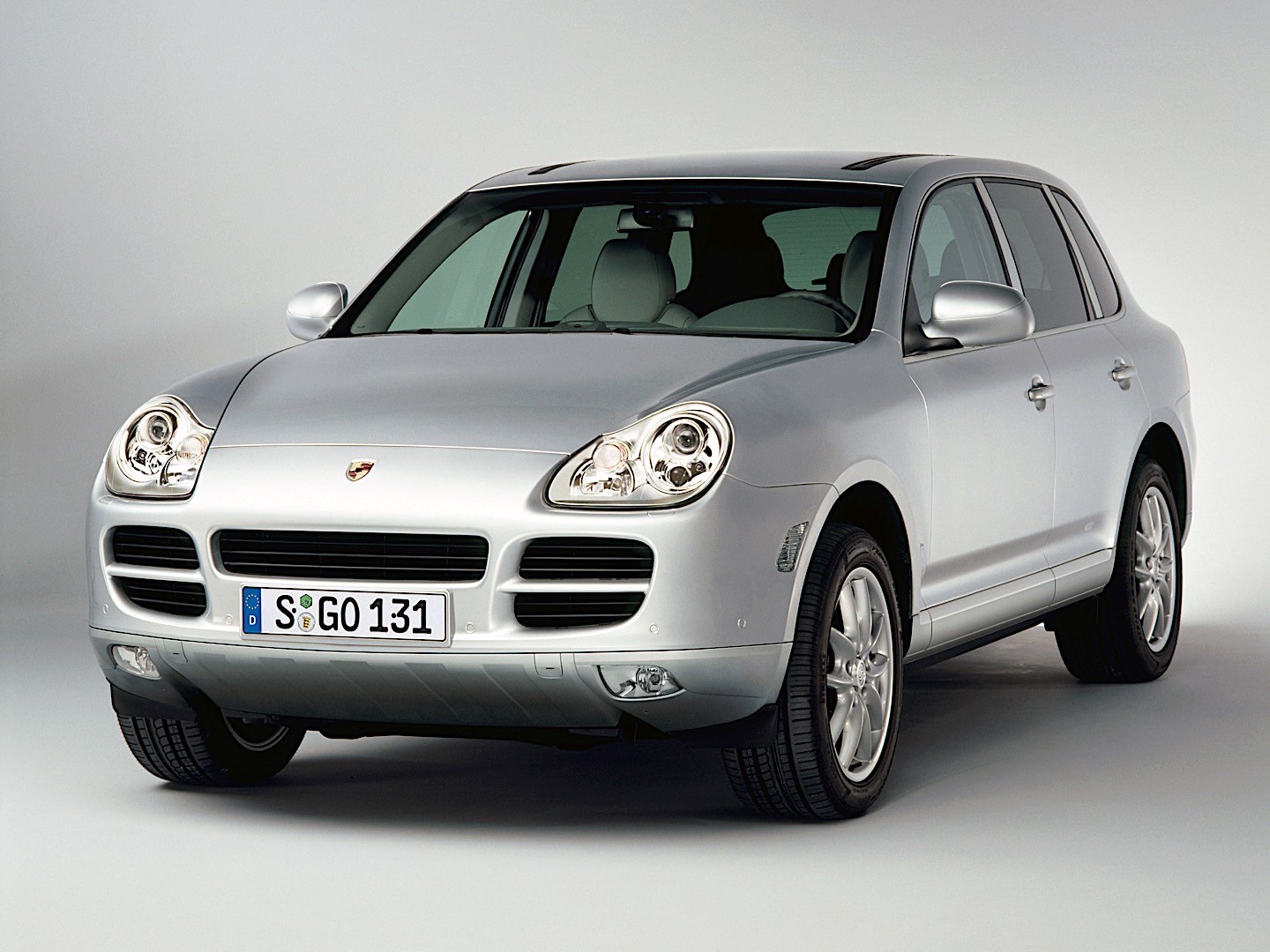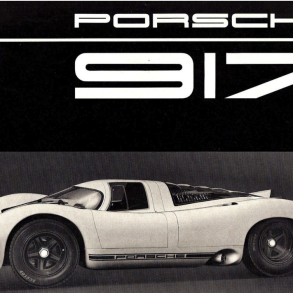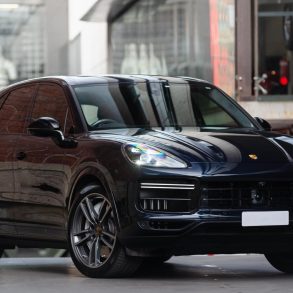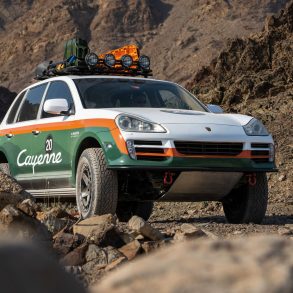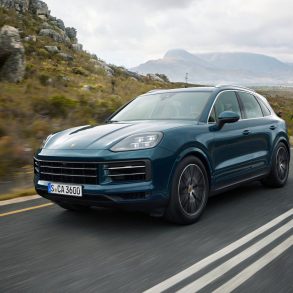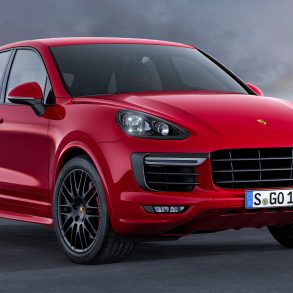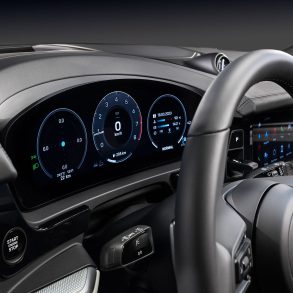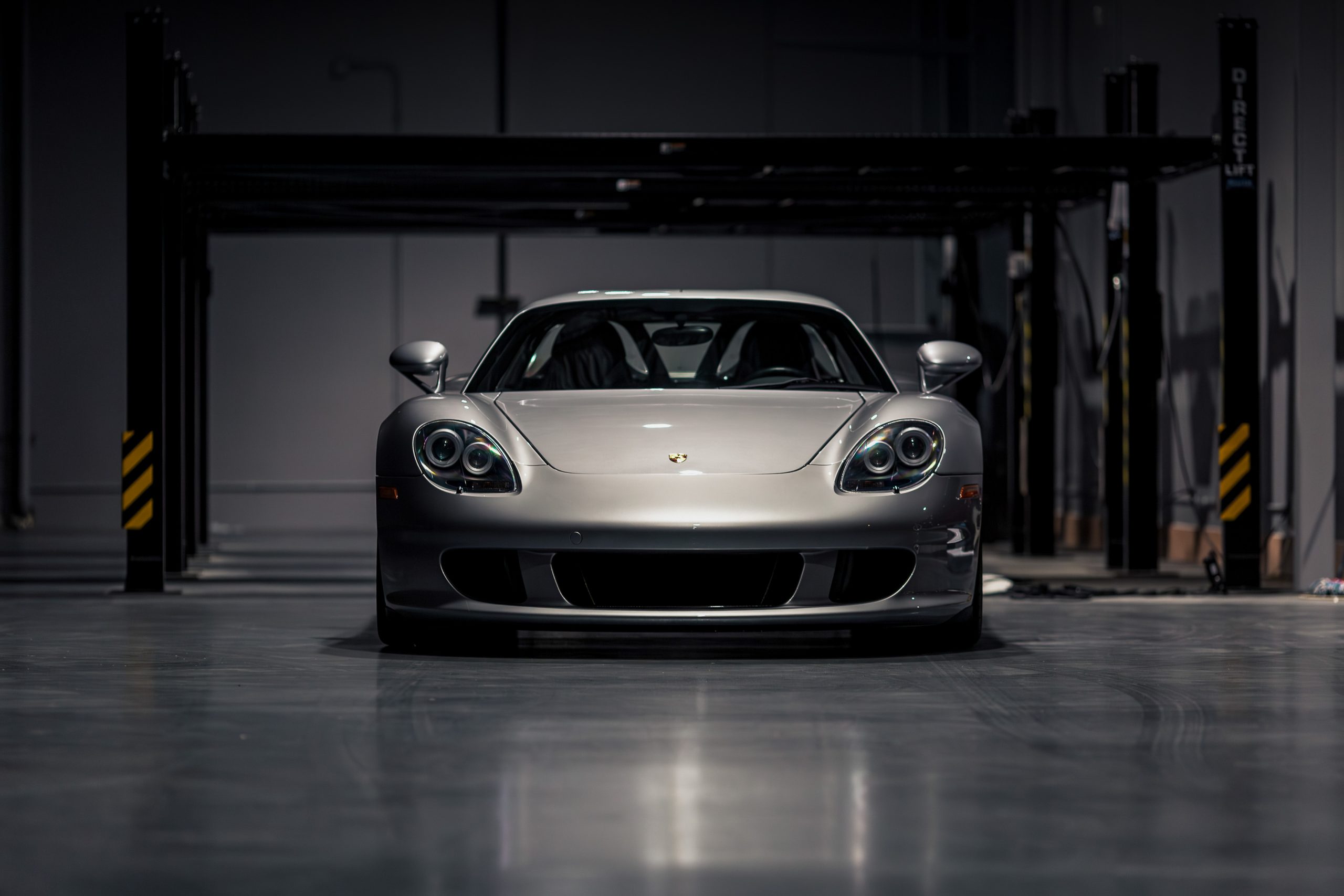(2008 – 2009) Porsche Cayenne – Ultimate Guide
On the brinks of the global recession in 2007, Porsche launched the 2008 Cayenne model. Although some addressed it as the second generation, it was more of a refresh, with better technologies and interior.
When the Porsche launched their first off-road model, the Cayenne, in 2002, the whole world was shocked. Nobody could believe that this could be possible. But they did it right. And, despite all the odds, the Cayenne was a great SUV with real off-road abilities and strong performance.
But the look even if it resembled some other 911 models, it wasn’t completely accepted. For the facelift, the streamlined headlights enhanced the car’s look. The bumper featured the same big air-scoops to cool the engine and the brakes. The DRLs were placed underneath the headlights, and inside of the side-scoops. A new set of rear-view mirrors were installed.
Inside, the interior has received an important update. The instrument cluster featured five round dials with analog and digital gauges inside. The infotainment unit received a well-deserved update compared to its previous version.
Under the hood, there were new and improved engines, with direct gasoline injection and, of course, more power. The 6-speed Tiptronic S was standard-fit for the Cayenne S and Cayenne Turbo, while the V6 versions had a 6-speed manual. The power was sent to all four wheels via the Porsche Traction Management (PTM) that could send all the power to the front or back if needed.
Pictures
Press Release
The 2008 model year marks the launch of the second generation of the Porsche Cayenne, the Porsche of SUVs, and the new Cayenne, Cayenne S and Cayenne Turbo back up their aggressive new design with larger and more powerful – but also more fuel-efficient – engines.
With a striking new face that features a dramatic new headlight design and with a wide and muscular new body accented by broad wheel arches, the 2008 Porsche Cayenne’s newly sculpted sheetmetal provides vivid visual testimony to the vehicle’s enhanced technical features.
As you would expect from Porsche, the new Porsche Cayenne not only looks more powerful, it is, with engines offering as much as 500 horsepower, and with new dynamic technologies that allow the Porsche of SUVs to perform more like a nimble sports car, yet be fully capable of towing a trailer or blazing along unpaved terrain and through inclement weather.
Direct Fuel Injection
All three 2008 Porsche Cayenne models feature engines that for the first time boast direct fuel injection, a technology that enhances fuel efficiency as well as power production.
For the 2008 Porsche Cayenne Turbo, that means a twin-turbocharged 4.8-liter V8 that pumps out an astounding 500 horsepower and 516 pound-feet of torque. Flowing through a six-speed Tiptronic S transmission, that power feeds all four wheels and propels the five-passenger sports machine from a standing start to 60 miles per hour (96 km/h) in just 4.9 seconds. Top speed on the test track has been recorded at 171 mph (275 km/h). And yet, the Porsche Cayenne Turbo qualifies as an LEVII (low-emission vehicle) and in preliminary fuel economy testing the Porsche Cayenne Turbo showed the benefits of the direct fuel injection technology with an improvement up to 11 percent in highway driving compared to the previous generation Porsche Cayenne Turbo. The estimated EPA fuel economy values are 13 mpg for city driving and 20 mpg on the highway.
The 2008 Porsche Cayenne S has a normally aspirated version of the 4.8-liter V8 that generates 385 horsepower and 369 lb-ft of torque. Equipped with the six-speed Tiptronic S transmission, the Porsche Cayenne S can accelerate to 60 mph in 6.4 seconds and has reached 155 mph (250 km/h) in testing. The Porsche Cayenne S V8 even meets ULEV (ultra low-emission vehicle) status and according to preliminary testing data the estimated EPA fuel economy values for the Porsche Cayenne S are 14 mpg in the city and 21 on the highway. That is an improvement of 3 mpg or around 15 percent for highway fuel economy.
The 2008 Porsche Cayenne is powered by a 3.6-liter V6 that pumps out 290 horsepower and 283 lb-ft of torque. With the manual gearbox, the Cayenne reaches 60 mph in 7.5 seconds and has reached 141 mph (227 km/h) in testing. The Porsche Cayenne gains LEVII emission status and preliminary fuel economy testing showed estimated EPA fuel economy figures of 18 mpg in the city and 22 on the highway. That is a fuel economy improvement of 3 mpg for city driving.
A long list of new technologies
Direct fuel injection is only one of the new technologies featured on the 2008 Porsche Cayenne, Cayenne S and Cayenne Turbo. For example, for the first time the Porsche Cayenne V8 engines also are equipped with Porsche VarioCam Plus variable valve control.
Porsche originally launched its sport utility vehicle as a 2003 model that for the first time put the sport into sport utility. The original Cayenne became Porsche’s best-selling vehicle and allowed entire families to experience Porsche dynamics not only on pavement but off road as well.
Now, the second generation Porsche Cayenne can be equipped with Porsche Dynamic Chassis Control that includes active anti-roll bars that almost completely offset body roll in turns, improving handling, comfort and safety on road while also providing enhanced traction off pavement.
Also new are Dynamic Curve Lights (standard on the Porsche Cayenne Turbo and optional on the other models) to enhance the driver’s view at night on a curving roads.
Standard equipment on all versions of the 2008 Cayenne includes Porsche Stability Management, now with new functions such as pre-loading of the braking system when needed, new Trailer Stability Control and off-road ABS.
For the first time, the Cayennes come with a rollover sensor able in an emergency to trigger both the belt latch tensioners and curtain airbags, thus helping to reduce the risk of injury for all occupants in a rollover. In conjunction with the Porsche Cayenne’s six standard airbags, this system gives Porsche’s sport utility a benchmark occupant safety and protection system.
Other new features include a standard and push-button Sports mode for all Porsche Cayenne engines, a standard power rear lift gate, the availability of 21-inch wheels, a rail-mounted cargo management system and XM satellite radio.
Cleaner looking, and cleaner through the air
The new front end of the 2008 Porsche Cayenne, Cayenne S and Cayenne Turbo features a more swept back configuration with headlights moved far to the outside and covered by clear glass help to give the new model its unique face and character. The sculpting of the wheel openings and front fascia also have been updated, exterior mirrors have been redesigned and a roof spoiler has been tweaked to enhance the Porsche Cayenne’s appearance and its aerodynamic efficiency.
Where the first generation V8 models had a drag coefficient of 0.39 and the early V6 a 0.38 figure, now all three versions register at a wind-cheating and fuel-efficient 0.35 mark.
Power Up
As before, the Porsche Cayenne comes with a V6 as its basic engine, though engine capacity expands from 3.2 to 3.6 liters and cylinder angle reduces from 15 degrees to 10.6. High-pressure direct fuel injection provides a significant increase in power output with torque jumping from 229 lb-ft to 272.
The V6 can be linked to either a six-speed manual or six-speed Tiptronic S transmission. With the manual, the Porsche Cayenne reaches 60 miles per hour (96 km/h) in just 7.5 seconds, compared to 8.5 seconds for the first generation version. The same maneuver takes only 7.9 seconds in a 2008 Porsche Cayenne with the automatic gearbox, compared to 9.1 previously. Top speed on the test track is 141 mph (227 km/h), compared to 133 (214 km/h) for the earlier model.
In addition to DFI, the 2008 Porsche Cayenne S and 2008 Cayenne Turbo’s 4.8-liter V8 features VarioCam Plus valve control, a technology that enhances performance through infinite valve timing and valve lift adjustment on the intake side.
The naturally aspirated V8 in the Porsche Cayenne S develops maximum torque of 369 lb-ft compared to the previous 310 and accelerates the Cayenne S to 60 mph (96 km/h) almost half a second faster than before – in a mere 6.4 seconds, with top test track speed now reaching 155 mph (250 km/h) compared to the 150 mph (242 km/h) of the previous model.
Benefiting from two exhaust gas turbochargers, the eight-cylinder in the Porsche Cayenne Turbo develops maximum output of 500 horsepower with peak torque of 516 lb-ft, accelerating the top model in the range to 60 mph (96 km/h) in just 4.9 seconds and providing a top test track speed of 171 mph (275 km/h). This means an improvement in performance in the top model by 0.3 seconds to 60 mph, with top speed up by 5 mph (9 km/h). Despite this significant improvement of performance, fuel consumption has been reduced for all new models.
Reinforced transmissions
The Porsche Cayenne comes standard with a reinforced six-speed manual gearbox, while the Cayenne S and the Cayenne Turbo feature Porsche’s six-speed Tiptronic S automatic transmission now developed to an even higher level of perfection and available as an option also on the Porsche Cayenne.
All models also have a longer final drive ratio.
The manual gearbox is combined as standard with the Porsche Drive-Off Assistant (PDOA). This assistance system automatically applies the brakes whenever required to prevent the vehicle from rolling back when the driver disengages the clutch. The automatic transmission also offers the same kind of rollback prevention with a Hill-Holder function that prevents the Porsche Cayenne from rolling backward when setting off in a forward gear on an uphill gradient.
Sports Button enhances performance
Standard equipment across the entire new 2008 Cayenne range is a new Sport Button. By pressing the button, the driver can choose between the Standard and Sports setup. In the Sports mode, the engine responds even more spontaneously, and models featuring an automatic transmission, air suspension and Porsche Active Suspension Management also switch to more dynamic configurations for the software that controls their hardware.
New option: PDCC for Anti-Roll Stability
Both the 2008 Porsche Cayenne and the 2008 Porsche Cayenne S come with steel spring suspensions, while the 2008 Porsche Cayenne Turbo features air suspension incorporating Porsche Active Suspension Management (PASM). This very special suspension is available as an option on the Porsche Cayenne and Cayenne S and offers not only adjustable damper control with three different settings, but the option of lowering or raising the entire body.
For the first time, PASM is available with Porsche Dynamic Chassis Control (PDCC), an active anti-roll control system that limits body roll in bends and balances out the car under nearly all driving conditions, with the body showing only a slight movement in very dynamic and sporting situations.
As a result, the Porsche Cayenne offers not only a significant improvement in handling, but also an equally significant improvement of driving stability and ride comfort.
PDCC comprises two active anti-roll bars with hydraulic swivel motors integrated in the front and rear axles. Responding very quickly and building up significant pressure of up to 2610 psi (180 bar), PDCC is able to generate appropriate support and counter-forces before the body of the Porsche Cayenne is able to sway to the side in a fast bend.
PTM for excellent traction
Intelligent Porsche Traction Management (PTM) offers an ideal combination of very good on-road and offroad driving characteristics, distributing engine power in the standard mode at a 38:62 front-to-rear ratio.
Depending on road conditions, a multiple-plate clutch operated by an electric motor and controlled electronically is able to vary the division of power as required, if necessary feeding up to 100 percent of the engine’s power and torque either to the front or to the rear wheels.
PTM not only responds to a lack of traction, but incorporates sensors measuring the speed of the vehicle, lateral acceleration, steering angle and the position and use of the gas pedal in order to provide enhanced control under the most extreme dynamic driving conditions.
In difficult terrain, PTM is able to use the off-road low-range gear integrated in the transfer case with its transmission ratio of 2.7:1, also applying a 100 percent longitudinal lock should any of the wheels lose ground contact.
PSM with an extended range of functions
Featured as standard equipment on the Porsche Cayenne, Porsche Stability Management (PSM) communicates permanently and consistently with Porsche Traction Management, but only intervenes when the Porsche Cayenne reaches the limits of driving physics.
The new Brake Assistant and the pre-loading function on the brakes significantly improves the overall quality and efficiency of the brake system: As soon as it detects application of the brakes in an emergency by means of information provided by the hydraulic PSM control unit, the Brake Assistant builds up the brake pressure required for maximum stopping power.
The brake pre-loading function, in turn, develops higher pressure within the brake system immediately when the driver takes his foot abruptly off the gas pedal and therefore helps to shorten the stopping distance required under application of the brakes.
Trailer Stability Control detects any pendulum motion on the trailer and intervenes by applying the brakes individually as required in the interest of enhanced brake stability.
A sub-function of the anti-lock brake system is that if it detects application of the brakes on loose ground, it periodically increases wheel slip during brake cycles. This off-road ABS function is particularly advantageous on snow, sand or fine gravel, building up a wedge of the material beneath the vehicle in front of the wheels to provide an additional braking effect on loose ground or slippery surfaces.
Wheels up to 21 inches in diameter
The 2008 Porsche Cayenne comes on 17-inch wheels, the Cayenne S and Cayenne Turbo are fitted with newly designed 18-inch wheels. All models are available with 19-inch wheels and all-season tires as well, while brand-new 21-inch wheels in attractive ten-spoke (Sports Wheel) or multi-spoke (Sports Plus Wheel) designs provide an even more sporting look combined with enhanced performance on the road. Yet a further benefit of these new wheels is that they are no heavier than the 20-inch wheels also available as an option.
Even higher standard of passive safety
Two full-size airbags for the driver and front passenger, two thorax side airbags and two curtain airbags in the roof frame covering both the front and rear side windows help ensure an exceptionally high standard of passive safety inside the Porsche Cayenne. With the exception of the center rear seat, all seats come with belt latch tensioners. Front seats also have belt force limiters.
Apart from collisions in a longitudinal and lateral direction, the sensors now detect the risk of the vehicle rolling over. This function is provided by a new rolling rate sensor in the airbag control unit activating the belt latch tensioners and curtain airbags in an emergency.
Dynamic Curve Lights
Bi-xenon headlights are standard and are supplemented on the Porsche Cayenne Turbo by both Static and, for the first time, Dynamic Curve Lights that enhance active safety. This feature is optional on the Cayenne and Cayenne S.
The Dynamic Curve Lights are activated as speeds of 2 mph (3 km/h) or greater and ensure better illumination on winding roads. The Static Curve Lights, in turn, provide even better illumination of the road ahead close up to the vehicle.
Power lift gate standard
A power tailgate is standard on all Porsche Cayenne models and enables the driver to open and close the rear lid at the touch of a button. The system even allows the owner to program a customized opening height to prevent the tailgate touching a low garage ceiling.
A new, optionally available cargo loading area management system has features such as a rail system integrated in the floor of the luggage compartment and a partition net that allows even safer and more convenient stowage of luggage within the luggage compartment.
Natural leather available
Another new feature is the optionally available, highly attractive leather Black/Chestnut Brown upholstery in natural leather.


